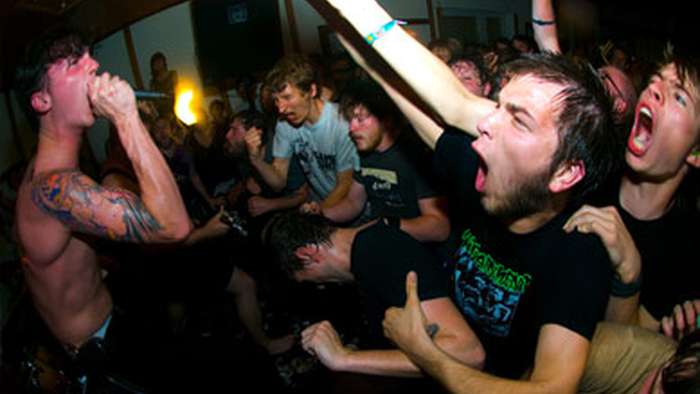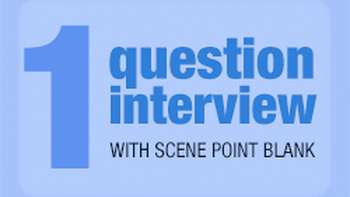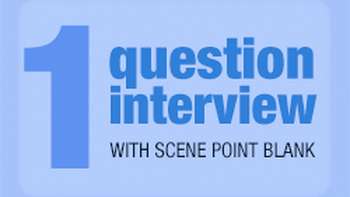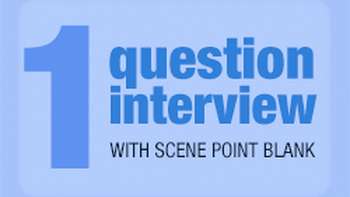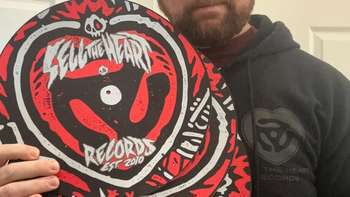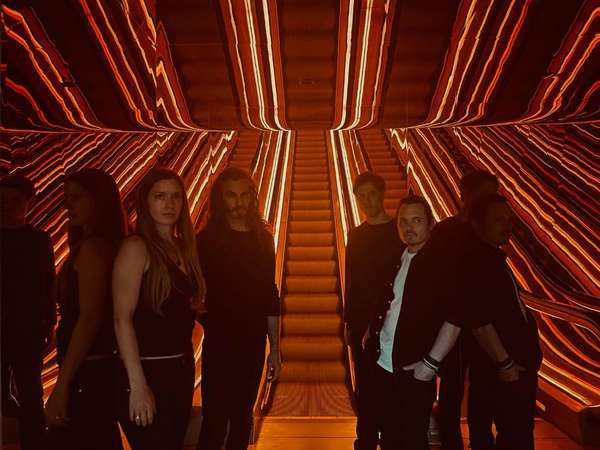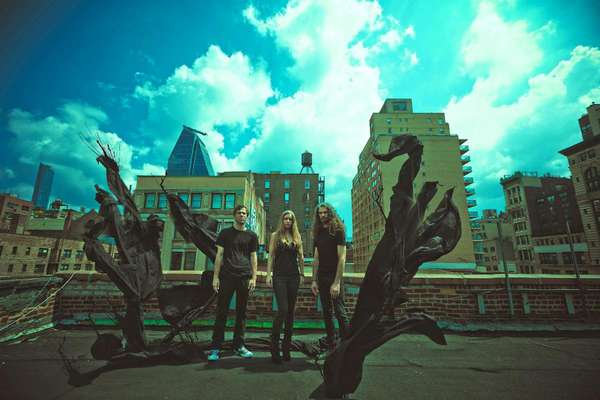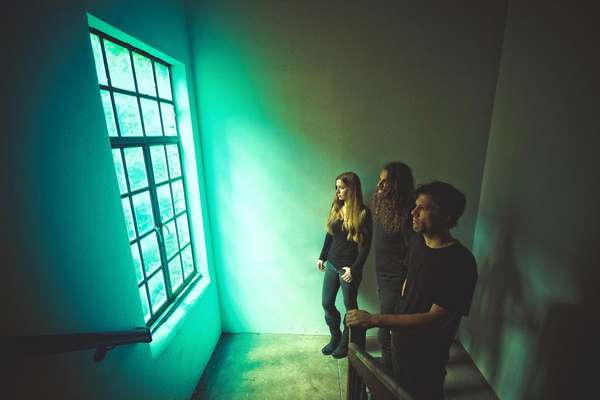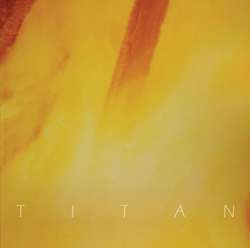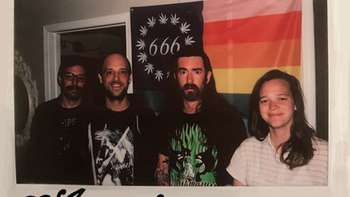After forming in 2006, Ontario’s Titan has released a run of short-play EPs before compiling efforts for last year’s Burn, their first full-length. The band chose to release it on Hypaethral Records, their own start-up. Catching up on the record, their songwriting, and future plans, SPB chatted with James McDonough and Chris Woodford.
Check out their catalog at the Titan Bandcamp or Hypaethral Records Bandcamp pages.
Scene Point Blank: You released Burn at the beginning of the summer last year. How's the reception been since?
James McDonough: The reception has been great. We’d been working on the full-length for a long time, mixing some of its songs into our live set for years – it was great to play and tour a set where all of our songs were released and available to people. That’s going to change soon, but it’s been a satisfying time for the band: everything is out on the table and now is the perfect time to get started on some new things.
Scene Point Blank: It's your first full-length since you formed back in 2006. How did the writing and recording process differ from your shorter, previous efforts?
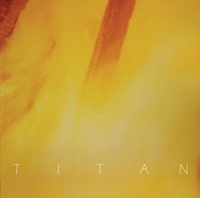 McDonough: The only thing that was different was the attention we gave every detail. For this record, everything was together and we were in complete control of it all. We left little up to chance and really agonized over the smallest details. In recording EPs or splits or demos or whatever, there’s a certain rush to things, and that’s usually present (and welcome) in the outcome. For Burn, we rushed nothing (sometimes intentionally, other times not so much) but made sure it came out how we wanted it.
McDonough: The only thing that was different was the attention we gave every detail. For this record, everything was together and we were in complete control of it all. We left little up to chance and really agonized over the smallest details. In recording EPs or splits or demos or whatever, there’s a certain rush to things, and that’s usually present (and welcome) in the outcome. For Burn, we rushed nothing (sometimes intentionally, other times not so much) but made sure it came out how we wanted it.
Scene Point Blank: You're obviously not hesitant in writing fairly lengthy songs. Is that the intention when you begin writing a new bunch of songs or is it just the result of ideas building on one another?
McDonough: It’s a mix of a few things, I guess. Fundamentally, it’s just an element of our style. Sometimes the riff of a song, the essential component, just happens to be really long. As in, to play the riff once takes 30 or 45 seconds. So it’s inevitable that the song will be so long. Other times, the songs are sort of conceptualized to be the way that they are. For example, “Myopic” was envisioned as a bit of a banger—we didn’t want to waste any time, just riff after riff and keep it fast and heavy, whereas the lyrics to “Warmer Months” sort of demanded musical accompaniment that had an epic scope and took its time building up big crescendos. We’re not hesitant to let the song reach a longer-than-usual length, but we’re also not hesitant to edit our writing; some songs, in their completed form, are much shorter than we originally wrote them. We always take a step back in our writing process to make sure the songs have some element of composition: not just riff riff riff riff, but a logical backbone that justifies every part and a highly-tuned filler filter.
Scene Point Blank: Following the release of the album you toured Europe for a month last summer. How was that?
Chris Woodford: It was great. It was our third time touring Europe so we tried to push out into countries that we hadn’t been to previously. We were very lucky to play in Spain, Italy, Austria, and the Czech Republic for the first time. We played some great festivals: Cry Me a River, New Noise Fest, and Fluff Fest. Fluff Fest was, for sure, the most people that we’ve ever played to. We’ve made a lot of friends in Europe over the years, so it was great to reconnect with them and spend some time. All of the shows and bands that we played with were great.
Scene Point Blank: How do you juggle the efforts of being in an active band with daily life?
McDonough: We make incredible demands and sacrifices upon our employers, families, educations, significant others, bank accounts, and personal hygiene.
"Does a band on a major or larger independent label need to raise a quarter of a million dollars for a release? No way."
Scene Point Blank: What are your thoughts on the Toronto hardcore/metal scene these days?
McDonough: Every city has its ups and downs as far as bands and scenes and venues but Toronto is doing great right now and, really, always has been. Lots of good outside label support as well as new labels in Toronto doing some really interesting stuff. There’s no fear of experimentation or genre-crossing, it’s an open-minded, intelligent scene of people who know how to have a lot of fun. Some favourite bands right now for me/us are: Sound Asleep, Rising Crust, Thantifaxath, Column of Heaven, Sylvus, Vilipend, Teethmarks, White Ribs, and more that I’m forgetting.
Scene Point Blank: Lyrically you touch on a broad range of topics and draw from a wide variety of topics. How do you think the diversity affects your writing process?
McDonough: For me, the lyrical style has just always what I thought suited the music. It’s allowed the band to appropriate a variety of moods, words and issues, whether personal, philosophical, socio-political, or completely abstract, and so I write songs that take on the lyric appropriately. The lyrics are usually written well in advance, and we discuss the sort of theme that the song as a whole should take on and let the two elements work together. The lyrical process doesn’t feel bound to a certain style or subject matter, and the music doesn’t either. As long as it’s heavy, we’ll do it.
Scene Point Blank: Websites such as Kickstarter are becoming a popular topic in many music circles because of its impact on how artists connect with their fans and produce music. It has seemed to be a very successful tool for some bands, with fellow Ontarians Protest The Hero recently raising almost a quarter of a million dollars in less than a week on Indiegogo. What do you think about the idea of fundraising through fans and websites such as these?
Woodford: On the one hand, I think that sites like Kickstarter could be great for smaller bands and labels. Especially when helping fund things like new releases or tours. Releases are expensive, plane tickets are expensive. It’s almost the same concept of labels doing pre-orders. It’s often hard just trying to keep things financially sustainable. I think a great idea would be for a band to use Kickstarter to try to raise money for a tour and then play only free shows on that tour.
Also, I’m a programmer by trade, so I like when I see people creating technology that can help out bands like us. I mean, where would we be right now without Bandcamp? Bandcamp has helped bands immensely.
On the other hand, I just see sites like that being used to fuel the inherent meritocracy of the music “scene.” Does a band on a major or larger independent label need to raise a quarter of a million dollars for a release? No way. Just by being on a larger label, they already have access to most (if not all) of the resources that they need. By virtue of those resources, they already have a larger reach, a larger “fan base” which, ultimately, means more people to “access” in order to boost their Kickstarter.
Since Kickstarter itself is agnostic to who use it and how, I don’t really foresee any big moves in helping smaller independent bands, but we’ll see how things play out and what fundraising platforms will come around that can connect with the viral-ity of social media in order to build a network that specifically helps the small independent artists from music to art to publishing.
Scene Point Blank: With 2012 behind you, are there any upcoming plans for the new year?
Woodford: Right now we’re working on a follow up record to Burn. Hopefully we’ll be hitting the studio in the fall. We’re loosely starting to plan some shows for Eastern Canada in the summer.
Scene Point Blank: Thanks a lot for your time, guys. Anything else you'd like to say?
Woodford: Thanks a lot for having us!
